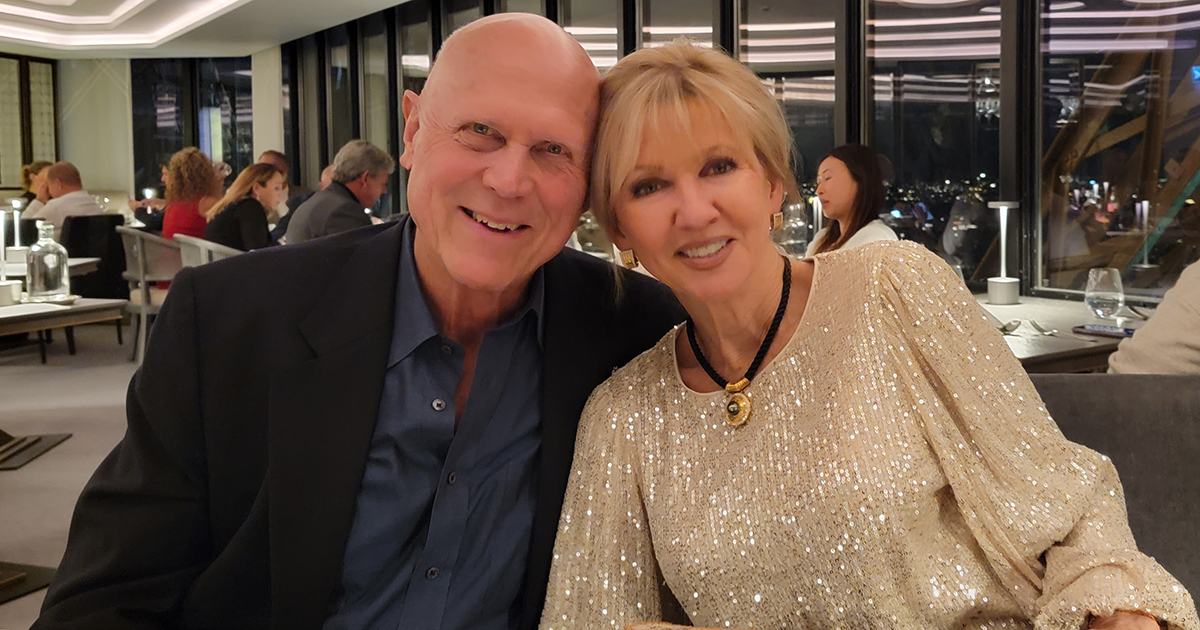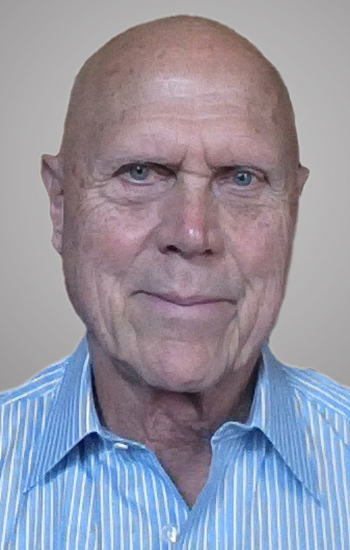Get to Know Honorary Degree Recipient Richard W. Sorenson MBA’68, P’97 ’00, G’27

Richard W. Sorenson MBA’68, P’97 ’00, G’27 always suspected that business school was a possibility thanks to his lineage. His grandfather, toolmaker Arthur Carling, founded Carling Tool & Machine in Hartford, Connecticut, in 1920, weathering the Great Depression and a devastating factory fire that left him working through the winter without a roof.
Carling started as a tool and die manufacturer but shortly, due to a customer’s cancellation of tooling, introduced the company’s first product, a handheld brush. Subsequently, the company switched to production of electrical products, beginning with porcelain switches and light fixtures.
Sorenson recalls listening to his parents talk about the family business as a child: an early lesson in risk and reward that he still thinks about today.
“I can remember them sitting us down as kids and telling us they had to borrow a lot of money at that time, maybe $800,000, to buy out my uncle’s share and that they could go bankrupt,” he says. “As kids, we had to be prepared, but over 10 years, they paid it off. I was about 8 or 9 years old.”
Despite his business background, he majored in American literature at Brown University and opted against delving deeply into math or engineering, even though he enjoyed both subjects.
“I loved literature, reading, and skiing,” Sorenson recalls with a chuckle. “I took a few courses in engineering at Brown, but then I got serious and decided to go to business school. I looked at Babson and thought it was wonderful. I was impressed with the facilities and the people, and I really wanted to learn accounting. I didn’t know debit from credit back then.”
For his career achievements and commitments to Babson, Sorenson will be presented with an Honorary Doctor of Humane Letters degree at the College’s graduate Commencement ceremony May 13.
Building Relationships
When he earned his MBA from Babson in 1968, he also didn’t want to ask his family for a job. Instead, after graduation and at the height of the Vietnam War, he enrolled in the Army Reserves for basic training. He also joined General Electric’s financial management program at their medium steam turbine and gear facility in Lynn, Massachusetts.
“Then, my father asked me to come work for the company. I never wanted to just present myself at the doorstop and say, ‘Hey, Dad, here I am. Hire me!’ It was nice to have him come to me,” he says.
His father made a smart choice. Sorenson joined the company, then Carling Electric Inc., at the start of 1970 and became president in 1975. Sorenson devoted much of his energy to his favorite passion, product design and development, and over his career was granted 50 patents for electrical and electronic product innovations. Over his career, he was able to oversee the family business grow from 160 employees to 2,700, with factories in the United States, Mexico, and China, and offices around the world.
“I always recognized tremendously how Babson really helped me not only on the entrepreneurship side of things, but really on the financial end: the accounting, valuation, cash flow.”
Richard W. Sorenson MBA’68, P’97 ’00, G’27, who will receive an Honorary Doctor of Humane Letters
He attributes a huge part of his success to Babson.
“I always recognized tremendously how Babson really helped me not only on the entrepreneurship side of things, but really on the financial end: the accounting, valuation, cash flow,” he says. “I could talk with our chief financial officer, understand the complexities, and come up with suggestions that were reasonable and thought-out. That benefited me and our company incredibly.”
But, he’s most proud of the business relationships he formed along the way and, of course, his family. Carling always operated as a small family business, with tight-knit relationships. His three children all obtained MBA degrees, joined the company as fourth-generation executives, and were instrumental in the growing success of the company.
“What I’m most proud of is the team that I was able to work with: their skill level and their ability and their trustworthiness, which was incredible,” he says. “I know there were some hiccups, as there always are, but really, we had so much fun.”
In 2021, Carling Technologies, after 101 years as a family company, was acquired by Chicago-based industrial technology manufacturer Littelfuse Inc. These days, Sorenson focuses on his family. Two of his three kids, Jennifer Sorenson Buddenhagen MBA’97, P’27 and Richard Sorenson Jr. MBA’00, are Babson graduates, and a grandson will start in the fall.
Dedication to Babson

Richard W. Sorenson MBA’68, P’97 ’00, G’27
Giving back to Babson also is an important focus: He served as a member of the Babson Corporation from 1996 to 1998 and as a trustee from 1996 to 2001. He became an inaugural member of the Circle of Distinction in 2019.
And, despite his years in manufacturing, Sorenson still has an artistic bent. On campus, the Sorenson Center for the Visual Arts and the Carling-Sorenson Theater were named in his honor. He and his wife, Sandy, established and continue to support the Rick and Sandy Sorenson Endowed Scholarship for the Arts.
“My wife and I love the arts. We just enjoy it so much because the arts are such a creative thing,” he says. “And, really, they’re entrepreneurial, because an individual is giving of themselves, and they’re providing something unique.”
Despite all this, he was surprised when Babson President Stephen Spinelli Jr. MBA’92, PhD approached him about receiving an Honorary Doctor of Humane Letters degree.
“It really, really shocked me,” he says. “I appreciate that, at this stage of my life, I can graduate again.”
Posted in Community



